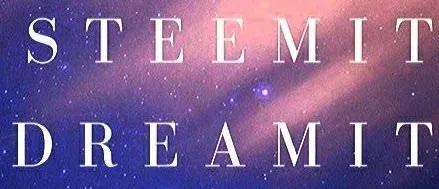It was about a good decade ago, right around the time when I was fanatically listening to Tom Waits, that I became interested in B. Traven. I'm still puzzled about the connection, but certain songs of Waits, such as Misery's the River of the World, Shore Leave, or God's Away on Business got me repeatedly thinking, I should read some Traven. Though at that time I didn't even know what to expect from that author, in the end it turns out I couldn't have been more spot on. Today, more than ever, the writings of Traven and the music of Waits complement each other perfectly. But let me talk about Tom Waits some other time, and focus on B.Traven instead.
Who Was B. Traven Really?
The only certain thing about B.Traven is that he was a writer with an obscure past. Some say he was born in Chicago, and then spent some time in Germany after World War I, before emigrating to Mexico. Other theories assume the exact opposite, that he was originally German, possibly even of a noble background, who used various pseudonyms and alternative identities, since he was actively writing for anarchist publications at the time in Germany, such as Der Ziegelbrenner. Whoever he was, eventually he settled down in the Mexican Ciudad de Victoria, where he wrote most of his novels, which are also set in that country. His most famous work, The Treasure of the Sierra Madre, was also turned into a movie in 1947, though I haven't read that book. The enigma surrounding his persona is a trip down its own rabbit-hole, with numerous theories and loose ends. Fact is, his writing is described as anti-capitalist and anarchist, addressing the exploited, downtrodden, and uneducated proletariat.
The Death Ship - From Bureaucratic Rigmarole to Crass Exploitation

It is here that the story turns serious. Instead of poking fun of the system, as our sailor had been doing along his odyssey through European officialdom, once on board of the death ship he explains the harsh reality of the exploitation he experiences. Hard work is part of it, and he goes into great lengths relating it in detail. But that is just the start. Since the owners of the ship intend to work it to death, there is a complete lack of maintenance, making the work so much more dangerous and less efficient. The worst part of it all, however, is the social aspect of being stuck on the receiving end of severe exploitation. It is shocking to see the way individual workers exploit each other (such as stealing rations of sugar), as utter disregard for all, including oneself, seems to be the name of the game on board.
Though the last part of the book picks up pace, giving insight on other exploitative practices related to death ships, such as shanghaiing, to me it is just a way to exit the story with a bang. It's the first two parts of the book that really illustrate all the dimensions exploitation can take. The Death Ship symbolizes perfectly the many facets of this exploitative world we find ourselves in, though time, space, and social class may make it seem far away.
The Cotton Pickers - Realities After the Victory of the Revolution

The protagonists of The Cotton Pickers are very similar to the sailor on The Death Ship. They are unskilled laborers, foreigners, probably Americans, you could maybe even call drifters, who go through a number of jobs, each with their own ways to get the better of them. Picking cotton is actually just where they happen to be working when the story picks up, and soon they end up working in a variety of different jobs, including on an oil-field, in a bakery, and on a cattle ranch.
The tendency is always the same: hard work, long hours, adverse conditions, and when it comes to being paid... well, there always seems to be a problem. Interestingly, Traven adopts many viewpoints in his story, explaining the rational behind each exploitative practice, raising the point that the problem is not the individuals who take advantage of each other, but the system in its entirety. It is also interesting to see how labor unions become involved, as well the as the Mexican authorities enforcing the law (the revolution has won after all), attempting to protect the rights of workers.
Although the situation for The Cotton Pickers is much better than on The Death Ship, B. Traven leaves no doubt regarding the flaw in the system, which is geared towards exploitation, even if you try to give it a humanist surface.
Join LBRY To Get Your Own Copies!
If you are interested in reading these books, you can find them on my stortebeker channel at LBRY. If you are interested in joining LBRY, please follow my invite. You may also be interested in my other book reviews in my Bibliophilia series:
My 12 Most Recommendable Permaculture Readings
Another 12 Permaculture Books - Specialized Readings
Riane Eisler – The Chalice and the Blade
William McDonough and Michael Braungart - Cradle to Cradle
Charles Eisenstein - Sacred Economics
Ken Kesey - One Flew Over the Cuckoo's Nest
Charles C. Mann - 1491
Tom Wolfe - From Bauhaus to Our House
Ideas and Concepts of Daniel Quinn
B. Traven - The Death Ship and The Cotton Pickers
Books by Wladimir Kaminer
Remembering the Good Doctor Gonzo - Hunter S. Thompson
Tom Wolfe - The Electric Kool-Aid Acid Test
Robert A. Wilson Expanding His Readers' Minds
Gary Jennings' Head-dive into Mexican History
Please check out these great communities I'm contributing to:

#ecotrain | What is EcoTrain | Discord Community

#cyclefeed | Introducing CycleFeed | Discord Community


Introducing SteemitDreamit | Discord Community